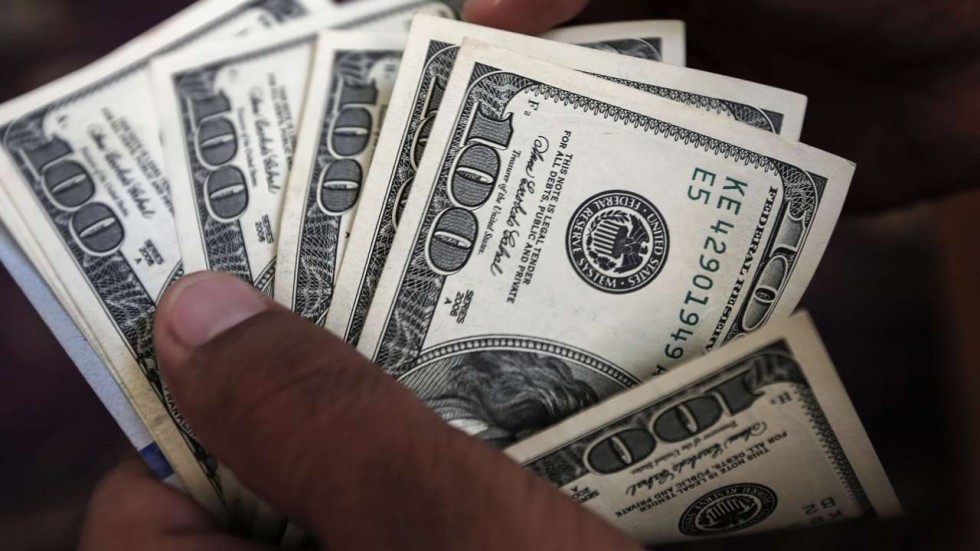- Foreign Reserves to Rising on $2.5b Eurobond Issuance
Nigeria’s 42.8 billion external reserves will go up, with the successful issuance of the $2.5 billion Eurobond offer, a report said at the weekend.
Besides, cumulative transactions in the Investors’ & Exporters’ (I&E) forex window have hit $20 billion, said one of the reports on the economy released by two investment and research firms at the weekend.
They said Nigeria is showing signs of recovery after a difficult economic period that followed historically low oil prices, a currency devaluation, and high inflation.
Afrinvest West Africa Limited’s report said the $2.5 billion Eurobond cash raised by the Federal Government to refinance maturing short term local debt securities will push foreign reserves to new heights. “We expect further accretion to external reserves currently at a 48-month high of $42.8 billion with positive feedback on the Central Bank of Nigeria’s (CBN’s) ability to sustain foreign exchange intervention sales,” it said.
External reserve was $40.4 billion last December. The last time the foreign reserves hit the $40 billion mark was January 2014, about five months before the crash in global oil prices. In September 2008, the country’s foreign exchange reserves hit $62 billion, with the Federal Government spending $12 billion from it to settle external debts.
The report said that despite downside risks of volatility in the oil market and political uncertainty, the short term positive outlook on forex market stability and liquidity remains intact.
Another report from Exotic Capital titled: ‘Fragile Recovery, Positive Outlook’, also released at the weekend, said that Nigeria’s forex regime, although still far from ideal, had begun to stabilise.
“A multiple currency regime evolved after the oil price fall in 2014 and the June 2016 devaluation, which led to a widening divergence between the official and parallel markets (the parallel market premium reached 100 per cent in January 2017). The current regime has shown a vast improvement this year with introduction of the I&E Forex window last April,” it said.
It said the parallel rate for naira is in the N360 to N365 range, nearly identical to the I&E Forex window rate used for international investors as well as importers and exporters, and has seen close to $20 billion in cumulative transactions since its introduction.
The Exotic Capital report said that despite the relative successes of the I&E Forex window, the current forex regime of multiple windows has hurt, and will continue to hurt, the economy over the medium term. “Not only does it create economic distortions (leading to market inefficiencies and dead-weight loss), it also builds mistrust among market participants who fear that competitors were able to access forex at different rates, doing little to create transparency and move the economy forward,” it said.
“Furthermore, we suspect that long-term domestic investment has been hampered as uncertainty looms not only over the future value of the currency but also over the regime. Nevertheless, we do not expect the CBN to make any major forex adjustments ahead of the 2019 presidential election unless oil prices / production falls again (as that would hinder its ability to supply forex to meet demand),” the report added.
It doubted the possibility of the CBN adopting market-determined rate (free float), but “as an interim approach, it could consider unifying its multiple rates around the I&E Forex window rate, which we think would help it to attract more portfolio and direct investment, as well as mitigating some of the previously-discussed issues”, the report.
Market data showed that CBN last week continued its weekly forex interventions, injecting $100 million on Monday via wholesale SMIS intervention.
A total of $55 million was auctioned at the Small and Medium Enterprises (SMEs) segment while $55 million was sold to satisfy retail invisible demand (Tuition fee, medical payments and Business Travel Allowance).
The forex rates traded within a tight band at all segments of the market with the CBN official spot rate trading flat all week after initial five kobo depreciation on Monday to N305.90/$1.00.C

 Naira4 weeks ago
Naira4 weeks ago
 News3 weeks ago
News3 weeks ago
 Education4 weeks ago
Education4 weeks ago
 Social Media4 weeks ago
Social Media4 weeks ago
 Economy4 weeks ago
Economy4 weeks ago
 Investment4 weeks ago
Investment4 weeks ago
 Dividends4 weeks ago
Dividends4 weeks ago
 Business3 weeks ago
Business3 weeks ago





























